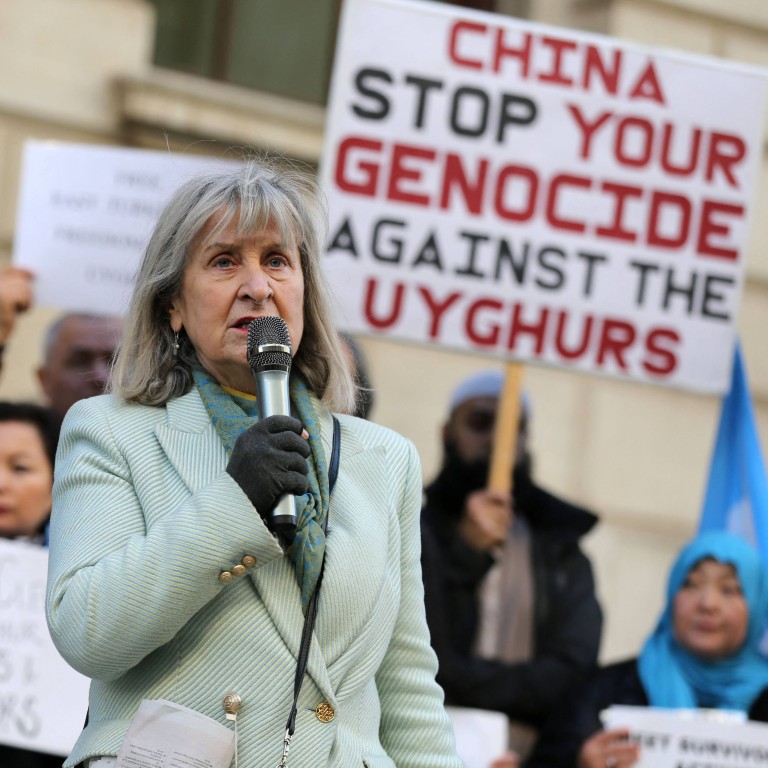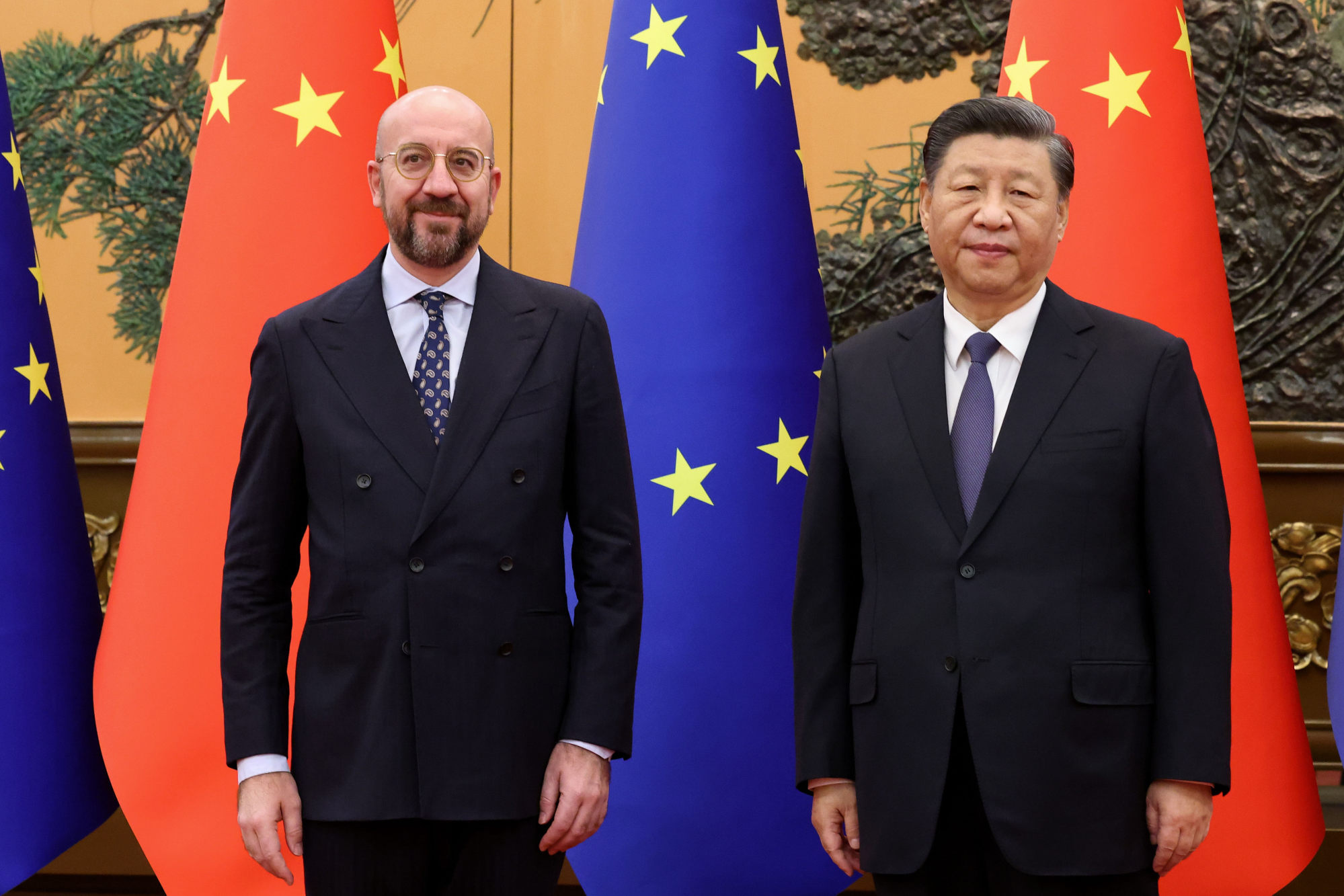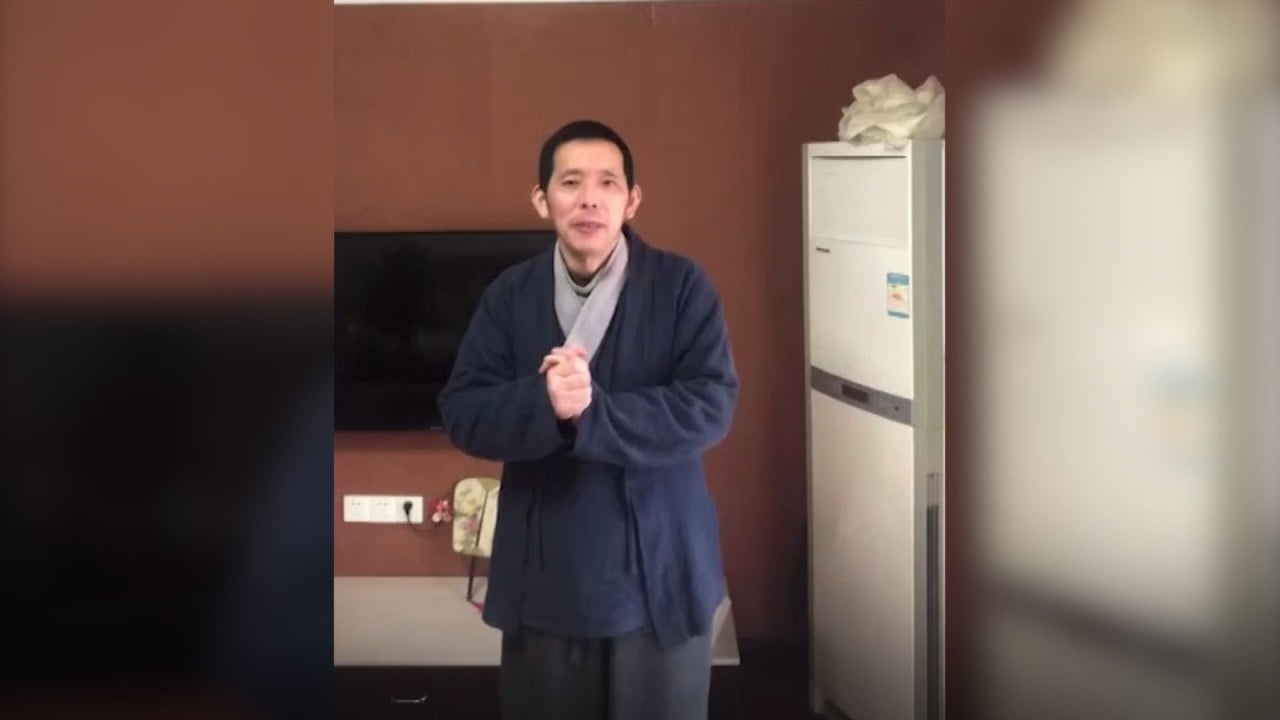
China faces EU criticism over treatment of Uygurs, other minorities as human rights talks resume
- The EU has sanctioned Chinese officials for the treatment of minorities in Xinjiang, which the United Nations says may constitute ‘crimes against humanity’
- European officials also criticise the ‘deterioration in the situation of freedom of peaceful assembly and association, and freedom of expression in Hong Kong’
The European Union denounced China’s treatment of Uygurs in Xinjiang, Tibetans, and other religious, ethnic and linguistic minorities during resumed human rights talks in Brussels on Friday.
European officials also criticised the “deterioration in the situation of freedom of peaceful assembly and association, and freedom of expression in Hong Kong”, according to an EU account of the meeting.
Beijing has not issued its own version of events, but according to the EU, it “focused on the situation and treatment of refugees and migrants in the EU and manifestations of racism and xenophobia in the EU”.
It was the first dialogue of this sort since 2019, with subsequent human rights meetings delayed by first Covid-19, and then fallout over EU sanctions on Chinese government officials for the treatment of minorities in Xinjiang, which the United Nations said could constitute “crimes against humanity”.
Brussels, referring to the UN report, urged Beijing to “urgently” implement the body’s guidelines in Xinjiang, where some European parliaments and the United States government have accused it of committing genocide.
China denies any allegations of persecution of Uygurs, and strongly refuted the UN report in September.
The EU, which is formulating a forced labour ban that was driven by allegations of such practices in Xinjiang, raised “serious concern at the persistent restrictions on the exercise of fundamental freedoms, use of forced labour, limits on due process rights and lack of judicial independence in China”.
Officials from the EU’s foreign service called for Beijing to immediately release a host of individuals who they said are detained without due process.
EU lawmakers push for ‘genocide’ designation in Xinjiang
These include high-profile Uygur figures such as the scholar and economist Ilhan Tohti, the Swedish bookseller Gui Minghai, as well as Tibetan activists, human rights defenders, the citizen journalist Fang Bin – who used social media to broadcast images of Wuhan during the early days of the pandemic – and a range of protesters detained during November’s anti-government protests sparked by strict Covid-19 controls.
After a years-long hiatus, Beijing agreed to restart discussions during last April’s EU-China summit.
But there was no further commitment made until European Council President Charles Michel travelled to Beijing and made a personal plea to Chinese leader Xi Jinping late last year.
The Chinese government then moved quickly to set a date, but not everyone was pleased with the resumption.
Before Michel’s visit to Beijing, he spoke with rights groups, some of which pointedly asked him not to resurrect the forum because it was a “waste of time”, sources said.

This week, 10 such groups said the EU should suspend the talks “until conditions are met for tangible outcomes and progress”.
A letter sent to EU leaders said the talks were “meaningless … given the magnitude of China’s rights crisis, including its potential responsibility for crimes against humanity in the Xinjiang region”.
“The EU’s human rights dialogues with China have become increasingly meaningless because both sides know that Beijing can make no commitment and get away with it,” said Dolkun Isa, from the World Uyghur Congress.
Eventually, the talks took place amid a diplomatic flurry and a storm over a potential visit to European capitals by a leading Communist Party official in Xinjiang.
Erkin Tuniyaz was expected to visit London, Brussels and Paris, where he was to meet officials from the EU and national governments. However his trip was cancelled at the last minute after vigorous protests by lawmakers and rights groups.
Tuniyaz, the Communist Party deputy secretary in Xinjiang and chairman of the Xinjiang regional government, has been accused of facilitating a widespread campaign of oppression against Uygurs and other ethnic Muslims in Xinjiang.
In an article published by the EU Observer website this week, Maya Wang, a researcher for Human Rights Watch, said Tuniyaz’s proposed visit was “part of Beijing’s daring effort to erase this stain” – referring to the United Nations report last year that China may be committing crimes against humanity in Xinjiang.
“By initially accepting Tuniyaz’s official visit, and by resuming the tick-the-box exercise of a ‘human rights dialogue’, the EU risks helping Beijing to neutralise remaining pressure to hold it accountable,” Wang wrote.


